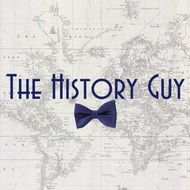
The History Guy Guild
History deserves to be remembered.
Join The History Guy from YouTube in conversation about his videos and various topics in history. Here you can find behind-the-scenes peeks of the set and The History Cats. Share ideas for future videos or ask questions of both the community and The History Guy himself. Early releases and the occasional extras are available for supporting members.
Join The History Guy from YouTube in conversation about his videos and various topics in history. Here you can find behind-the-scenes peeks of the set and The History Cats. Share ideas for future videos or ask questions of both the community and The History Guy himself. Early releases and the occasional extras are available for supporting members.
Interested? Want to learn more about the community?
Christmas Flowers and Foreign Wars: Joel Roberts Poinsett
The bright red flower called the poinsettia has become a traditional part of American Christmas celebrations. But the flower’s common name, which, while it sounds exotic, has nothing to do with the native name for the plant, is a reference to an American diplomat of whom a 1929 edition of the Baltimore Evening Sun wrote “His Career was as flamboyantly colorful as the poinsettia, and yet he is almost forgotten.”
Interested? Want to learn more about the community?
What else you may like…
Videos
Posts
Many Firsts: USS Langley
On February 27, 1942 a three decades old US Navy ship was attacked by Japanese aircraft and sunk. It was a difficult time for the allies, many ships were lost that day. But the sinking of USS Langley represented the end of one of the most consequential ships is the Navy's history.












